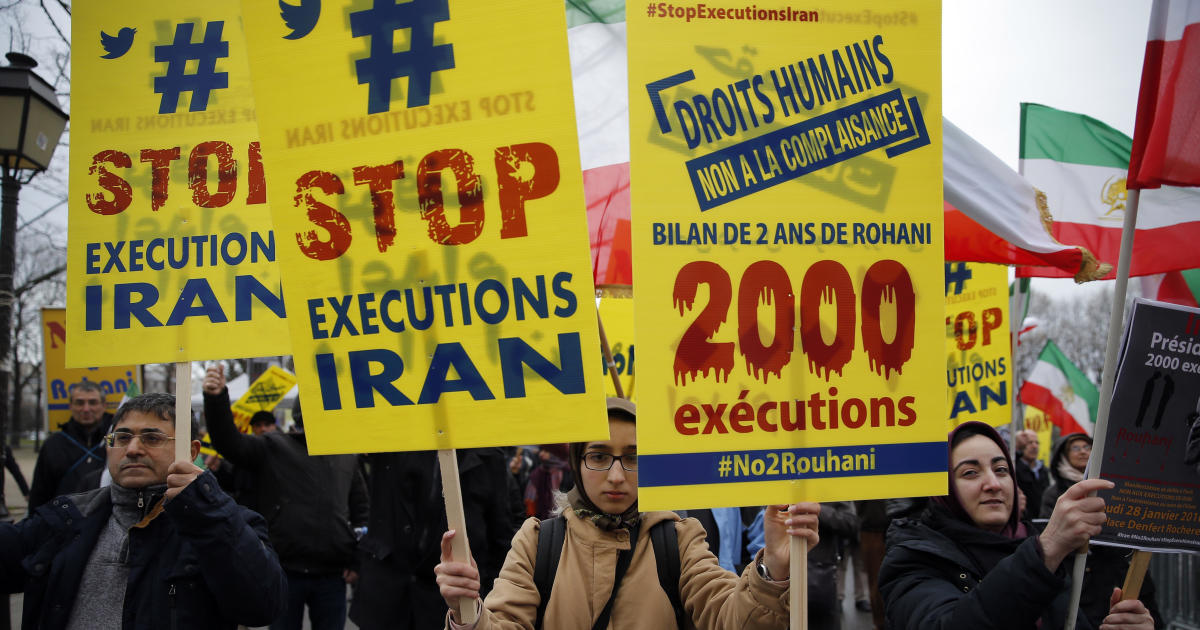The Islamic Republic of Iran’s recent public execution of two men for the murder of a police officer underscores a deeply troubling trend: the country’s alarmingly high and increasing rate of capital punishment. This act, reported by the judiciary’s Mizan Online, occurred in the city of Khomein and highlights not only the severity of Iran’s legal system but also the broader implications of its human rights record. The execution, a relatively uncommon public spectacle in Iran, serves as a stark reminder of the government’s unwavering commitment to capital punishment, despite international condemnation and concerns about due process. This practice, coupled with the sheer volume of executions, raises serious questions about the fairness and transparency of Iran’s judicial system and its overall commitment to fundamental human rights. The lack of transparency around many executions, along with allegations of unfair trials and coerced confessions, further intensifies international concern. This incident compels a closer look at Iran’s use of the death penalty, its impact on society, and its implications for international relations.
Iran’s High Execution Rate
Iran consistently ranks among the world’s leading executors, second only to China, according to various human rights organizations such as Amnesty International and Human Rights Watch. The sheer number of executions carried out annually is deeply concerning. Reports indicate a significant increase in executions in 2023 compared to previous years, a trend that directly contradicts claims of positive change within the country. This sharp rise necessitates an in-depth analysis of the contributing factors, including the types of crimes leading to capital punishment, the judicial processes involved, and the lack of transparency surrounding many executions.
Factors Contributing to the High Execution Rate
Several factors contribute to Iran’s high execution rate. The country’s legal system broadly applies the death penalty to a wide range of offenses, including murder, drug-related crimes, and sexual assault. However, concerns persist regarding the fairness of trials, allegations of coerced confessions, and lack of adequate legal representation for many accused individuals. The lack of transparency surrounding the judicial process also raises serious doubts about the accuracy and legitimacy of many death sentences. Furthermore, the prevalence of extrajudicial killings further clouds the issue, making it difficult to gain a complete understanding of the actual number of executions occurring within the country. Finally, the public nature of some executions underscores the deeply punitive character of the regime, signaling to both the population and international community its strict enforcement of its laws, regardless of ethical or legal considerations.
Public Executions: A Tool of Intimidation?
The public nature of the recent executions in Khomein is noteworthy. While not commonplace, it highlights a potential strategy of intimidation and public display of power. Such public executions serve to instill fear and potentially discourage criminal activity, but at a substantial cost to human rights and international law. The spectacle itself carries deep symbolic meaning, showcasing the state’s absolute authority and its willingness to employ extreme measures to maintain order. From a human rights perspective, such public displays are viewed as inhumane and violate fundamental principles of dignity and respect for human life.
The Impact of Public Executions
Public executions inflict immense psychological trauma, not just on those immediately affected but also on wider communities, potentially desensitizing individuals to violence and undermining trust in the judicial process. The fear generated can stifle dissent and prevent potential challenges to the existing system. Critics suggest that this public display undermines human rights standards and demonstrates a profound disregard for the ethical considerations of justice and due process. The international community’s condemnation of such acts reflects a growing understanding that such methods of punishment contradict basic principles of human dignity and civilized society.
International Condemnation and Human Rights Concerns
The international community has consistently condemned Iran’s high execution rate and its use of capital punishment, with human rights organizations such as Amnesty International and Human Rights Watch documenting numerous cases of serious human rights abuses. These condemnations emphasize the fundamental flaws in Iran’s judicial system, particularly in terms of fairness, transparency, and respect for the right to life. International pressure to halt executions and improve due process is relentless but, sadly, often falls on deaf ears. The continuing executions signal a deep-seated resistance within the Iranian government to external influence or criticisms regarding their human rights practices.
The International Response
International sanctions and diplomatic pressure aim to curtail Iran’s use of capital punishment, but the effectiveness of such measures remains highly debated. Many organizations work to bring awareness to the issue, supporting those affected by the Iranian government’s harsh policies and calling for reforms and greater respect for international human rights laws. While diplomatic and financial measures are necessary components of any strategy, they face challenges when encountering governments resistant to external pressure or where internal issues complicate foreign relations. The international community must maintain its consistent condemnation while exploring effective, collaborative strategies to prompt meaningful reform in the Iranian judicial system.
Takeaway Points
- Iran maintains one of the highest execution rates globally.
- The recent public execution highlights the Iranian government’s unwavering commitment to capital punishment.
- Public executions are criticized for being inhumane and for their potential use as a tool of intimidation.
- The international community continues to condemn Iran’s human rights record and apply pressure for reform.
- The long-term effectiveness of international pressure on Iran’s human rights policies remains a considerable challenge.




